Archive for May, 2010
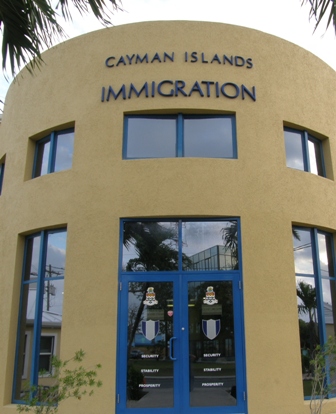
Immigration boss says employers causing delays
 (CNS): The work of the Immigration Department is being held up by incomplete applications and the CEO is asking employers to comply with the law when applying for permits. Chief Immigration Officer Linda Evans said that inadequate applications are slowing the process down and warned that boards may refuse applications that are not in compliance. She also added that some employers are not advertising vacancies properly as they are legally obliged to do. Evans reminded them that they need to place ads for the permit application posts in at least two issues of a local newspaper for two consecutive weeks.
(CNS): The work of the Immigration Department is being held up by incomplete applications and the CEO is asking employers to comply with the law when applying for permits. Chief Immigration Officer Linda Evans said that inadequate applications are slowing the process down and warned that boards may refuse applications that are not in compliance. She also added that some employers are not advertising vacancies properly as they are legally obliged to do. Evans reminded them that they need to place ads for the permit application posts in at least two issues of a local newspaper for two consecutive weeks.
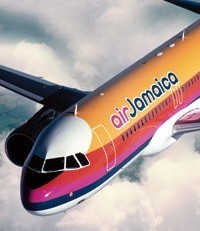
Air Jamaica may return to Grand Cayman
 (CNS): According to reports in the Jamaican Gleaner this weekend, Air Jamaica maybe considering reintroducing its Kingston to Grand Cayman and Kingston to Nassau routes. Chairman of Caribbean Airlines, Arthur Lok Jack, told journalists that during the transition period Air Jamaica would be flying eight routes to the United States and Canada as well as the Cayman Islands and the Bahamas. However, Air Jamaica chief executive officer Bruce Nobles told another reporter that it would be premature to say the local carrier will be returning to Cayman in the foreseeable future.
(CNS): According to reports in the Jamaican Gleaner this weekend, Air Jamaica maybe considering reintroducing its Kingston to Grand Cayman and Kingston to Nassau routes. Chairman of Caribbean Airlines, Arthur Lok Jack, told journalists that during the transition period Air Jamaica would be flying eight routes to the United States and Canada as well as the Cayman Islands and the Bahamas. However, Air Jamaica chief executive officer Bruce Nobles told another reporter that it would be premature to say the local carrier will be returning to Cayman in the foreseeable future.

Cayman hedge fund exit predicted to accelerate
 (FT.com): The hedge fund industry’s ongoing drift away from the Cayman Islands to onshore locations in Europe could be accelerated by impending European legislation and a recent court case in the Caribbean territory, industry figures believe. The proportion of hedge funds domiciled in the Cayman Islands has slipped from 40.1 per cent to 37.3 per cent since the end of 2008, with Ireland and Luxembourg seeing their share jump by 60 per cent to 7.3 per cent, according to figures from Hedge Fund Research. The impending passage of a controversial EU directive placing stringent restrictions on the marketing of funds domiciled outside the EU to European investors is likely to accelerate this trend.
(FT.com): The hedge fund industry’s ongoing drift away from the Cayman Islands to onshore locations in Europe could be accelerated by impending European legislation and a recent court case in the Caribbean territory, industry figures believe. The proportion of hedge funds domiciled in the Cayman Islands has slipped from 40.1 per cent to 37.3 per cent since the end of 2008, with Ireland and Luxembourg seeing their share jump by 60 per cent to 7.3 per cent, according to figures from Hedge Fund Research. The impending passage of a controversial EU directive placing stringent restrictions on the marketing of funds domiciled outside the EU to European investors is likely to accelerate this trend.
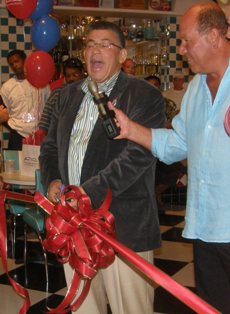
Batmobile finds new home in Cayman museum
 (CNS): Alongside Elton John’s Roller, Idi Amin’s Merc and the first ever car to come to Cayman, the famous Batmobile from the original TV series is now permanently on show in West Bay and a key exhibit in the Cayman Motor Museum. The country’s latest and one of its most unique attractions was opened on Saturday evening by the Premier McKeeva Bush, who said the owner’s investment showed confidence not just in the district but the future of the Cayman Islands. The museum is the realization of a dream by shipping magnate and vintage car collector, Andreas Ugland, who owns the collection of some 55 cars and 18 motor cycles now on show.
(CNS): Alongside Elton John’s Roller, Idi Amin’s Merc and the first ever car to come to Cayman, the famous Batmobile from the original TV series is now permanently on show in West Bay and a key exhibit in the Cayman Motor Museum. The country’s latest and one of its most unique attractions was opened on Saturday evening by the Premier McKeeva Bush, who said the owner’s investment showed confidence not just in the district but the future of the Cayman Islands. The museum is the realization of a dream by shipping magnate and vintage car collector, Andreas Ugland, who owns the collection of some 55 cars and 18 motor cycles now on show.

 The museum officially opened to the public today (Monday 3 May) where people can see the diverse range of vintage, sports and luxury cars, ranging from the world’s first car to the incredible bubble cars of the 1960s. The museum provides an historical tour of motoring throughout the world as well as Cayman with an exact model of the first vehicle ever to be driven in the Cayman Islands—a 1905 Cadillac—which has a place of special prominence in the museum.
The museum officially opened to the public today (Monday 3 May) where people can see the diverse range of vintage, sports and luxury cars, ranging from the world’s first car to the incredible bubble cars of the 1960s. The museum provides an historical tour of motoring throughout the world as well as Cayman with an exact model of the first vehicle ever to be driven in the Cayman Islands—a 1905 Cadillac—which has a place of special prominence in the museum.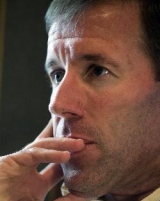
Bermuda opposition calls for “Operation Ceasefire”
 (The Royal Gazette): A partnership between community organisations and Police under the Operation Ceasefire model could do more to thwart Bermuda’s rising gun crime than the current scattered approach, according to the Opposition. Shadow Home Affairs Minister Sen. Michael Dunkley, believes the programme he is pushing would provide Bermuda with the structure needed to tackle the issue before it grows larger. Operation Ceasefire is credited with reducing gun crimes in cities across the US. First used to thwart Boston’s soaring homicide rate in the 1990s, it is a gun/violence prevention programme, which focuses on a collaboration between Police, public prosecutions and community activists.
(The Royal Gazette): A partnership between community organisations and Police under the Operation Ceasefire model could do more to thwart Bermuda’s rising gun crime than the current scattered approach, according to the Opposition. Shadow Home Affairs Minister Sen. Michael Dunkley, believes the programme he is pushing would provide Bermuda with the structure needed to tackle the issue before it grows larger. Operation Ceasefire is credited with reducing gun crimes in cities across the US. First used to thwart Boston’s soaring homicide rate in the 1990s, it is a gun/violence prevention programme, which focuses on a collaboration between Police, public prosecutions and community activists.
It involves identifying the gang members, rounding them up and explaining that violence will no longer be tolerated and if it continues will be met with a strong Police presence. At the same time community workers are on hand at the meeting to offer people a way out of their lifestyle.
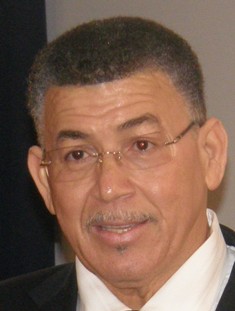
Mac criticises AG’s report
 (CNS): The premier has opted to criticize the findings in the auditor general’s report on government accounts rather than those responsible for failing to meet the requirements of the Public Management and Finance Law. Last week McKeeva Bush called the report “significantly lacking in usefulness” and that it “falls short". Bush denied that it was a national crisis or that government did not know what expenditure has occurred but that the expenditures have not been audited. He did not comment on the point that while government may know, without annual reports it is very difficult for the public to know how public money has been spent.
(CNS): The premier has opted to criticize the findings in the auditor general’s report on government accounts rather than those responsible for failing to meet the requirements of the Public Management and Finance Law. Last week McKeeva Bush called the report “significantly lacking in usefulness” and that it “falls short". Bush denied that it was a national crisis or that government did not know what expenditure has occurred but that the expenditures have not been audited. He did not comment on the point that while government may know, without annual reports it is very difficult for the public to know how public money has been spent.
Speaking in the Legislative Assembly, Bush said that he could not put a firm date on when the accounts would be up to date but he indicated that many of the outstanding financial statements would be finished by June this year. Bush did not say when those annual reports would then be tabled, making those accounts public documents. Nor did he reveal when he expected the first of the government’s entire annual reports to be tabled in the parliament, finally enabling the people to see exactly what government has spent on what and why, going back over more than five years.
Not for the first time, Bush criticised Dan Duguay for speaking publicly about his report. The premier said that the second edition of the State of Financial Accountability Reporting painted a dismal picture of the financial management systems but that the AG had not taken the time to understand what the real issues were, despite the considerable recommendations in the report, which the premier did not comment upon.
“Having read the auditor general’s report, I find that it is significantly lacking in usefulness to help guide the government out of this current backlog,” Bush said.
The report, however, offers five clear recommendations on the way forward, including how best to use the task force to help get the accounts up to date and to introduce consequences for the failure of senior government accountants to do their reports.
“It is easy to criticize and hint at some for of inadequacy but it is far more productive for someone to take time to really drill down and understand what the real issues are and then make meaningful and practical recommendations to overcome some of the deficiencies identified,” the premier added.
While Bush said he was not there to make excuses he blamed the problem on the PMFL and said its introduction was a fundamental change which affected the entire culture of government. He said it introduce a “complex and extensive” system which was designed to hold government ministries, departments, agencies and companies responsible for their own budgets.
Confirming previous announcements that his government would be seeking a reform of the law, Bush said that while PMFL contained some excellent aspirations, after six years the Cayman Island “still had some distance to travel” to meet its obligations.
During the debate regarding the government’s first changes to PMFL which was to remove the requirement for government to present its budget to parliament two months before the fiscal year end, opposition member Alden McLaughlin warned that while the law required some changes government needed to be careful not to erode the principles of good financial management. He noted that there had been a clear indication over the last few years that the public sector needed to enhance its financial management systems not make them worse. The PPM member pointed out that even in the Miller/Shaw report the authors pointed out what was missing from PMFL.
Defending the principles behind the law, McLaughlin said, “I have heard people say PMFL is too sophisticated and complicated for this small island and was designed for much bigger governments, but I don’t believe that is the case. Our challenge is to improve it and find out why it is not being implemented.”

Economic benefits and social consequencies
Just the other day I read a news story of a gentleman from Indianapolis, Indiana flying over to Wales for a medical operation. The lowest cost he could find in the USA was $34,000 – in the UK he got the same procedure done for £1,700.00.* There is definitely a market out there for Shetty’s hospital.
Whereas the economic success of the hospital and its actual owners is not really in question, the same results for Caymanians do not appear nearly as guaranteed.
Had there been a history of around the corner queues of Caymanians trampling over one another to enter the myriad of health professions I would be more optimistic.
The health industry is NOT, I repeat, NOT a glamorous one. Have we forgotten, for example, that the vast majority of Caribbean people who emigrated to the UK in the 50’s and 60’s did so to fill up many of these posts. The custom of "3rd world" nationals emigrating to the super nations as health care employees is still in full effect. That alone should put some degree of doubt or skepticism in the minds of people when considering this proposal. I am not trying to be an elitist, as I actually believe this very attitude is a major contributor to our current state of affairs, but I strongly believe in calling things the way they are.
We have long been regarded as a country with one of the highest standards of living in the Western Hemisphere, boasting a higher average salary than the USA, UK or EU etc. Therefore, the subsequent mindset of our people really has to be taken into consideration at a time like this.
It is important that we are clear of what we are talking about when we mention"health care".
Most Caymanians that have since drank the kool-aid are now harbouring pipe dreams of an unnaturally high number of world class Caymanian surgeons and specialists (insert the "How dare you suggest that Caymanians are unable to become qualified doctors!" remarks). This is not what I am saying at all people, but we need to be realistic when it comes to simple statistics. We are a tiny community and world class doctors, as would be required by such a facility, do not come a dime a dozen nor are they concentrated in a tiny island of 45,000 Caymanians.
Therefore, if we are to seriously consider the actual "opportunities" that this project will bring for Caymanians then we need to be focusing on the more achievable and available support roles of a medical facility: nurses, nursing assistants, general assistants, carers, therapists, porters, rehab, workers, etc.
How many Caymanians do we know that are sitting around just hoping that a few of these posts would open up to their satisfaction? What is the ratio of Caymanians to expats that actually fill these posts in our existing medical centers? What actual salary levels will be offered by Shetty’s hospital? Will these salaries be sufficient to maintain the average Caymanian living a basic Caymanian lifestyle (not 8 adults crammed in to a 2 bedroom bargain apartment)? Will the prospect of home ownership in the Cayman Islands even be a foreseeable one by way of these salaries? These concerns, in my opinion, are of fundamental importance. However, I am disappointed with the lack of attention being paid to them thus far.
I am sure many may object to my perspective on this issue and some will in fact insist on a necessary shift in regards to the typical Caymanian mindset, to which I would agree to some extent. However, this is much easier said than done as can be witnessed by the current uproar in the UK (and EU) in regards to the recent influx of Eastern Europeans that are "taking all of the jobs" – may I remind all that immigration is the #1 concern of this upcoming UK election.
In any event, posts will have to filled at the Shetty Hospital – and they will be. I am of the opinion that at the time its doors are opened there will not be nearly enough prepared (mentally / skilled) Caymanians to take up said posts. However, there are literally hundreds of thousands if not millions of Indian (and other) nationals eyeing this proposal with baited breath. While I am of the opinion that this project could, in fact, be beneficial for actual Caymanians, provided all of the above issues are properly addressed and enacted upon, I am afraid that all of this requires time and a gradual evolution. In the meantime, substitutes will be found.
This carries the further risk of even lower salaries, for I am willing to bet my left pinky that no skilled, experienced, immigrant worker will be let go in order to empower a newly qualified Caymanian. Business simply does not work this way.
Other concerns, of course, are the social issues that will no doubt arise with the (suggested) immigration of high numbers of Indian / Asian nationals into a predominantly Black / Brown Caribbean country. (Yes I said it.)
We all know of the great (color based) North vs. South Indian divide. We know of color politics in that country – to the point of its entrenchment in the very tenets of its predominant religion / way of life – Hinduism. By now we should all have heard about the "untouchables" within Indian society.
Seriously, I ask – has any consideration been given to this at all in regards to this overall proposal. These issues are alive and well throughout all levels and sectors of Indian culture. Not to mention the economic and social clan-like nature of Indian people. Actually, it could be argued that certain exclusionary elements of Indian culture has worked well for them as a people when they have emigrated into wider societies, however, such practices run therisk of being a hindrance more than a help onto the Caymanian way of life. Certainly, by now many may feel somewhat insulted or shocked by my words. However, again, I am just calling it the way I see it.
Anyway, I just wanted to highlight a few issues that I felt were being overlooked in this overall project. As we can see there are many potential pitfalls and risks involved. Sadly, Caymanians have a long history of not loving or respecting themselves enough to acknowledge the existence of many of these associated risks.
In any event it appears that all systems are "go" on this project. I guess there is nothing more to say than "we shall see". However, I believe that the fact that we have to rely on a "fingers-crossed" approach at this stage of such a significant development is quite a short-coming on the behalf of our government.
Oh yeah, almost forgot – I hope we are all prepared to be further criticized and attacked by the USA media and politicians as we prepare to eat some of their supper. The US health care industry is BIG business! Let us hold on to our hats. The news blitz will be amazing for every botched operation at the "Shetty Hospital".
* CNN: ‘I can’t afford surgery in the U.S.,’ says bargain shopper
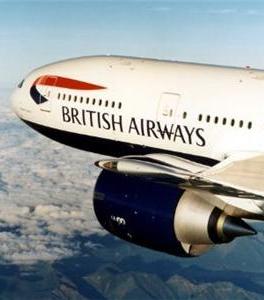
British Airways caught short on Cayman route
 (Daily Mail): Passengers on a British Airways flight from Heathrow to the Cayman Islands were told not to drink for two hours because none of the plane’s toilets were working. The 169 passengers and nine crew aboard the Boeing 767 to Grand Cayman via Nassau last Wednesday had been forced to share two toilets – including one in the exclusive Club World cabin – for most of the 12-hour flight after four others were closed owing to blockages.
(Daily Mail): Passengers on a British Airways flight from Heathrow to the Cayman Islands were told not to drink for two hours because none of the plane’s toilets were working. The 169 passengers and nine crew aboard the Boeing 767 to Grand Cayman via Nassau last Wednesday had been forced to share two toilets – including one in the exclusive Club World cabin – for most of the 12-hour flight after four others were closed owing to blockages.
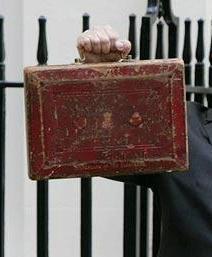
Experts warn of deep UK spending cuts
 (BBC): The UK faces the deepest spending cuts since the late 1970s if the three main parties are to meet their budget commitments, new analysis suggests. The years between 2011 and 2015 must see the largest cuts since 1976-80, according to a report from the Institute for Fiscal Studies (IFS). Its estimates suggest the Conservatives would need to make the biggest cuts. Meanwhile a Labour government would see the biggest tax rises, the think tank predicts. Based on commitments made so far, the Liberal Democrats would need to cut an accumulated £51bn from spending on public services by 2017.
(BBC): The UK faces the deepest spending cuts since the late 1970s if the three main parties are to meet their budget commitments, new analysis suggests. The years between 2011 and 2015 must see the largest cuts since 1976-80, according to a report from the Institute for Fiscal Studies (IFS). Its estimates suggest the Conservatives would need to make the biggest cuts. Meanwhile a Labour government would see the biggest tax rises, the think tank predicts. Based on commitments made so far, the Liberal Democrats would need to cut an accumulated £51bn from spending on public services by 2017.
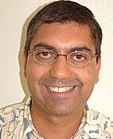
CITA elects new chief and lobbies for conservation
 (CNS): Following the organisation’s recent Annual General Meeting, the owner of Treasure Island Resort, Harry Lalli (left), has been appointed the new CITA president. Approximately seventy CITA members attended the event at the Ritz Carlton when Lalli was elected and Dan Szydlowski, general Mmanager of The Westin, was elected Vice President. During the meeting the membership discussed the association’s main goals for 2010, which included lobbying government to increase air arrivals and pass the National Conservation Law.
(CNS): Following the organisation’s recent Annual General Meeting, the owner of Treasure Island Resort, Harry Lalli (left), has been appointed the new CITA president. Approximately seventy CITA members attended the event at the Ritz Carlton when Lalli was elected and Dan Szydlowski, general Mmanager of The Westin, was elected Vice President. During the meeting the membership discussed the association’s main goals for 2010, which included lobbying government to increase air arrivals and pass the National Conservation Law.